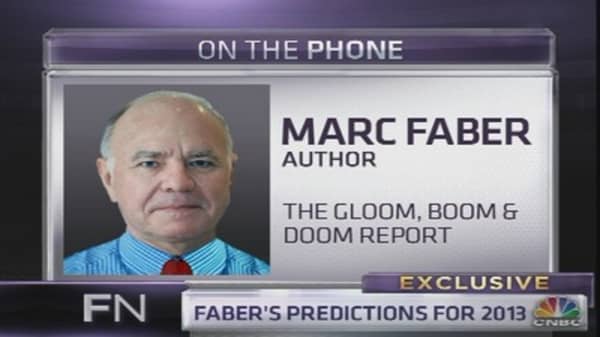The ratio was at 101 on average last year, but has averaged 90.9 percent over the last 10 years.
Donovan said it's unclear which way Congress will go, but the concern is there. "It still an overhang, but there's enough good news for the market, which is higher taxes," he said.
"If (prices) are very rich in late January, early February, the market could start getting more concerned…we'll be closer to the can kicked down the road, closer to the debt limit, closer to the next cliff and we'll be closer to the discussion probably about where the revenue is going to come from," said Donovan.
Nicholas said he is not comfortable that the industry is "out of the woods." Just this week, Rep. Sander Levin, D-Mich., the top Democrat on the House Ways and Means Committee, told a gathering of reporters that Congress should consider cutting tax benefits and loopholes, including the municipal bond tax exemption, according to the Christian Science Monitor.
However, Levin also said Congress may not get to tax and entitlement reform if the battles over the debt ceiling limit and automatic spending cuts, or the "sequester," stretch too far into 2013. (Read More:Sequestration—CNBC Explains)
"When we got through the fiscal cliff, everybody took a deep breath that we weren't included there," said Nicholas. "Most people thought tax reform is not likely this year. We're being very aggressive about this because the last thing you want to do is think you're safe and you're not going to be included and then read in the paper that you are."
"There's no question about what municipal bonds do, and who they benefit," Nicholas said. "The likelihood that the government raises much money at all from taxing munis by capping deductions…is slim. It will raise borrowing costs (for local governments) and it won't raise much money at all."
That would translate to higher property taxes.
"The reason that's attractive to members of Congress is it hits everybody, but I can tell you the issuers we are involved with make the case on the hill and in the media that property taxes are going to go up, that borrowing costs are generally going to go up. It's literally shifting the burden from the federal government to state and local governments," said Nicholas.






